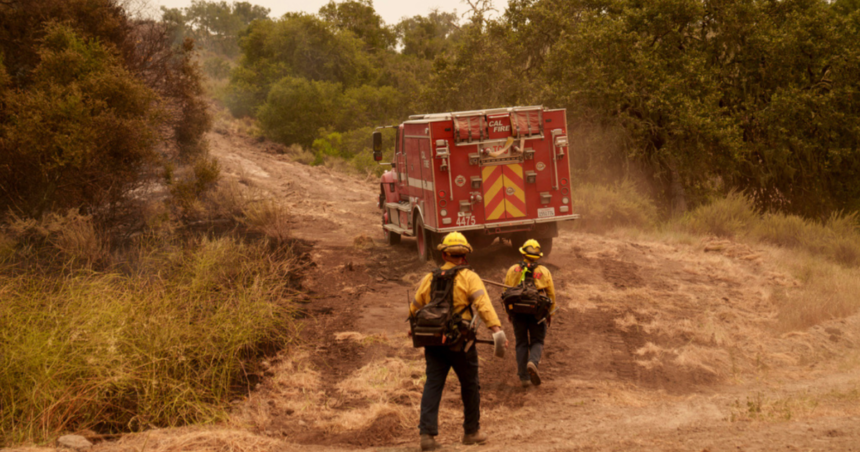It was quite challenging to find Ben McClane for an interview as he has been busy with firefighting assignments. He serves as a federal hand crew captain leading a team of wildland firefighters in the Pacific Northwest, and his schedule has been demanding.
“I worked for 28 hours straight and then took a brief break before heading back out to the fire line. Today we have a day off, but tomorrow we’ll be back in action for possibly weeks,” he mentioned as he packed up for his next task.
The life of a federal hotshot crew member demands resilience, dedication, and sacrifice. Teams of 20-25 individuals are deployed on assignments for extended periods, away from their loved ones for long durations.
During assignments, they sleep on the ground in sleeping bags near the fire and spend their days navigating through remote areas, often without trails, using tools like chainsaws to clear fuel and contain wildfires.
Despite the grueling nature of the work, McClane, with nearly a decade of experience, finds purpose in serving a greater cause and being part of a team dedicated to helping others.
“Being on a team that serves a purpose larger than any I’ve known before has truly captivated me. It’s fulfilling to work alongside others called to this service,” he explained.
RELATED STORY | Wildfires rage in California as heat wave bakes much of the Western US
McClane also dedicates his efforts to recruiting and training wildland firefighters from the Southeast, introducing them to the challenges and rewards of the profession that have brought him fulfillment.
However, he expresses concern about the future, emphasizing the need for more individuals to share the responsibilities of the job, which not only takes a physical toll but also impacts mental health.
To address the recruitment challenge, McClane advocates for better pay for federal firefighters, citing disparities in compensation compared to state and local firefighters in similar roles.
Jeff Marsolais, an associate chief overseeing fire and aviation resources for the U.S. Forest Services, acknowledges the issue of retaining experienced firefighters, attributing it to inadequate pay and benefits.
“Personal fatigue, separation from home, and low wages contribute to the difficulties our firefighters face. Many struggle to make ends meet, with some resorting to living in their vehicles due to financial constraints,” Marsolais explained.
Last year, U.S. Forest Service Chief Randy Moore reported a 45% attrition rate, underscoring the challenge of retaining skilled personnel in the firefighting sector.
This year, USFS successfully hired 11,300 firefighters, meeting their target for the fiscal year. However, Marsolais notes that additional efforts are required to address the loss of experienced individuals to other opportunities.
RELATED STORY | As climate warms, wildfires could make air more deadly, study says
Recognizing the critical need for adequate resources and personnel in wildland firefighting, advocacy groups like Grassroots Wildland Firefighters are pushing for legislative measures such as the Wildland Firefighter Pay Protection Act to secure permanent pay increases.
Without meaningful action, the temporary pay enhancements introduced by the Biden administration may lapse, exacerbating recruitment challenges and jeopardizing public safety.
McClane emphasizes the importance of adequate remuneration for firefighters not for personal gain but to ensure the availability of skilled responders during critical incidents.
“Proper funding is essential to ensure the right people are equipped to respond when needed, safeguarding our communities from unforeseen dangers,” McClane asserted.
Though the work of wildland firefighters often goes unnoticed, they play a crucial role in protecting remote areas from wildfires, ensuring the safety of residents.
As McClane readies himself for another demanding assignment away from his family, he urges community support in advocating for sustained attention to the challenges faced by firefighters.
“Ideally, wildfires should be contained in the wilderness, not encroaching on our neighborhoods. I hope that with continued awareness and support, we can address these issues effectively,” he concluded.





